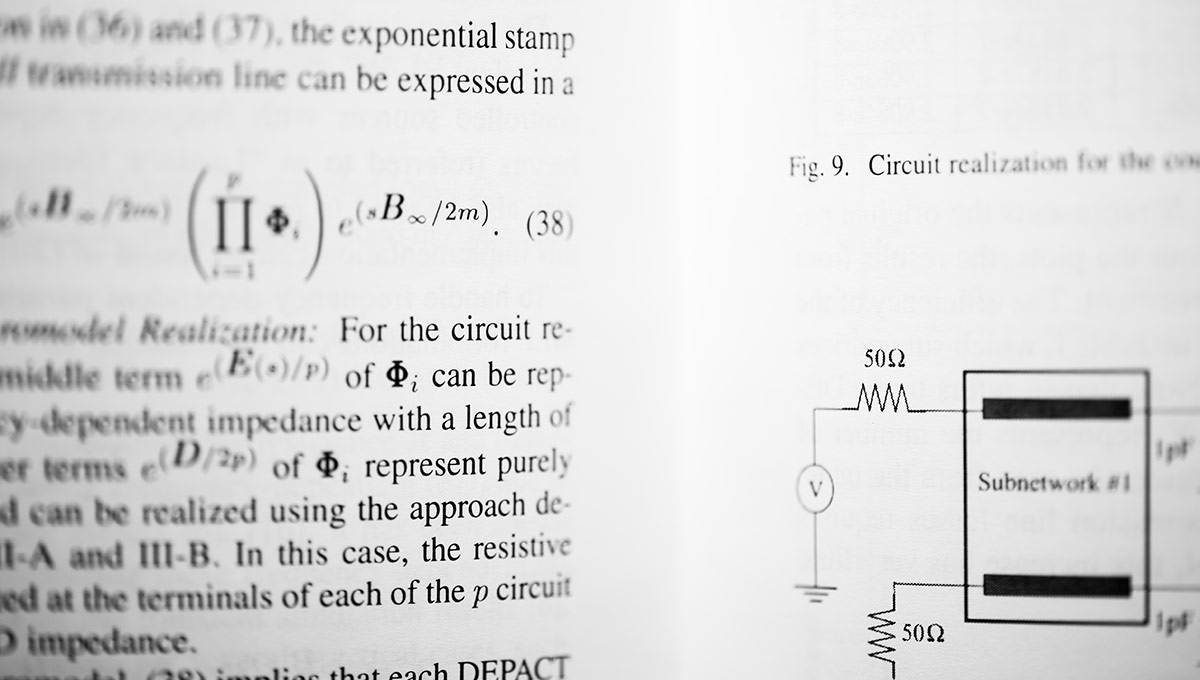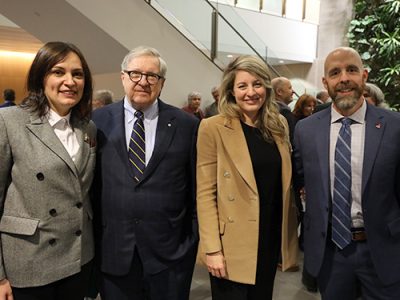By Elizabeth Howell
Photos by Luther Caverly
Carleton University Prof. Michel Nakhla has won the highest award possible from the Canadian branch of the Institute of Electrical and Electronics Engineers (IEEE). Nakhla’s exemplary contributions to the field earned him the IEEE Canada A.G.L. McNaughton Gold Medal. The medal is awarded annually to just one outstanding Canadian recipient.
Nakhla receives the honour at the IEEE Canada Awards Gala in Windsor on May 1, during the flagship Canadian Conference on Electrical and Computer Engineering.
“I’m very humbled,” Nakhla said in an interview. “It’s more incentive for me, and it’s more incentive for my graduate students, to strive for excellence. I’m always having a lot of fun doing my research and interacting with students. During my career, I have supervised many and it gives me pride to know that in some cases I am the grand-grand supervisor of current PhD engineering students, meaning that some students today are in my fourth generation of advisees.”

Nakhla’s interests are diverse, but one of the things that he focuses on is “developing intelligent computer algorithms to solve real engineering problems, and also to help creative thinking that can lead to innovative products,” he said. “We target areas ranging from circuit design, to power systems, to varying medical applications. Moreover, the results of our research can impact many other multidisciplinary fields in science and engineering.”
Previous IEEE Prizes and Fellowships
One of Nakhla’s greatest contributions to the field is pioneering the harmonic balance technique, which determines the steady-state of nonlinear circuits and networks. This technique forms the backbone of radio frequency and microwave circuit simulators, even today. His work in microwave theory and techniques also earned him the IEEE fellowship in 1998 and the IEEE Microwave prize in 2002.
Another of Nakhla’s research interests is design automation, which refers to software tools that are used to design electronic systems. (Examples include, but are not limited to, circuit boards and integrated circuits). Over more than a generation, Nakhla has authored and co-authored more than 350 technical papers, including many related to this field.
“Carleton, I believe, is a great environment for research,” said Nakhla, who is Chancellor’s Professor of Electrical Engineering in the Faculty of Engineering and Design and is active as both an educator and researcher. “What I like about Carleton is that all the different fields of engineering here promote collaboration. Carleton provides links to other research, both within the university and externally.
This has added to my ability to do my research, because no one can do everything alone.
Nakhla said that the research collaborations are not only a benefit to him, but also to his students.

Partnerships Help Students Develop Work Ethic
With real-life applications directly in front of them for their work, he said that the partnerships help students develop a solid work ethic.
Nakhla received his PhD in electrical engineering from the University of Waterloo in 1975. He entered his career with Bell-Northern Research (later Nortel), where he worked from 1976 to 1988 as a researcher and senior manager of design automation.
In 1988, Nakhla joined Carleton as a professor and held the Computer-Aided Engineering Senior Industrial Chair. The chair was established by Bell-Northern and the Natural Sciences and Engineering Research Council (NSERC).
After 13 years working as a professor in the Department of Electronics, Nakhla was chair from 2001 to 2003. He took on his current position as Chancellor’s Professor in 2003. He also founded the high-speed computer-assisted-design research group at Carleton.
His honours both inside and outside the IEEE are numerous. He was named a life fellow of the IEEE in 2011, received a Carleton University Research Achievement Award in 2007, and was a two-time recipient of the IBM Faculty Award in 2004 and 2005. Nakhla holds several patents and is the recipient of two Nortel outstanding contribution patent awards.
His contributions to the IEEE include numerous papers and lecture proceedings. Nakhla has also co-authored two books and written several book chapters. Besides his IEEE recognition, Nakhla was inducted in 2016 as a fellow of the Canadian Academy of Engineering for his contributions to design automation and for providing exemplary leadership and service as educator, R&D engineering manager and researcher.
Thursday, April 13, 2017 in Engineering, Research, Technology
Share: Twitter, Facebook





